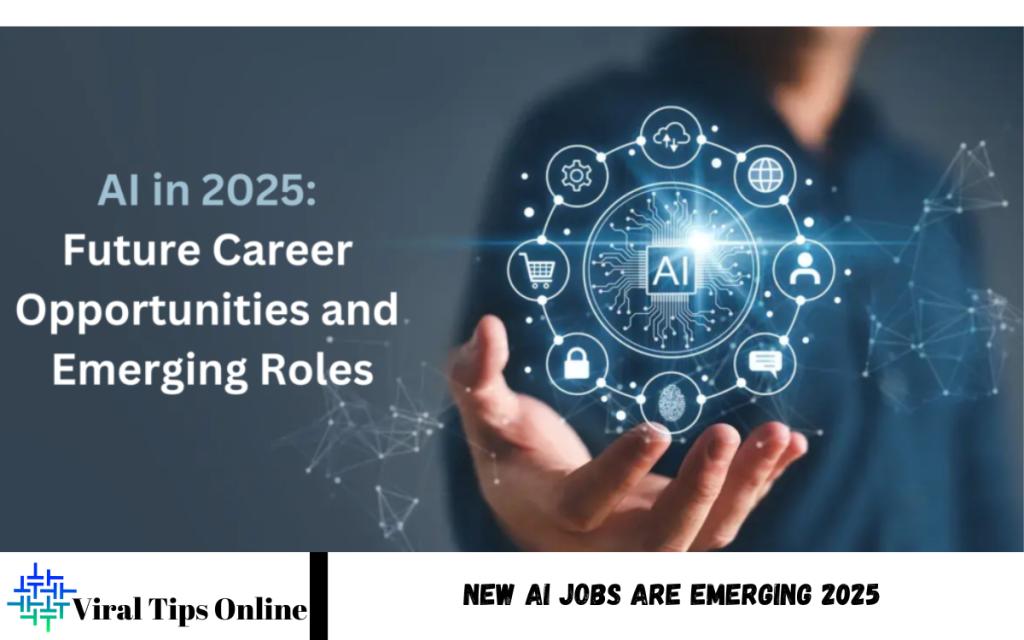Artificial Intelligence (AI) has rapidly transformed the way we work, live, and interact with technology, creating a surge in exciting career opportunities. AI jobs are now among the most sought-after positions globally, spanning industries from healthcare and finance to gaming and education.
The demand for AI experts continues to grow as companies seek to leverage data-driven solutions to improve efficiency, enhance customer experiences, and drive innovation. Careers in AI are diverse, ranging from machine learning engineers, data scientists, and AI researchers to AI ethicists and robotics specialists.
The Growing Demand for AI Professionals
The adoption of AI technologies is accelerating across the globe. Businesses are investing heavily in AI to automate processes, improve decision-making, and enhance customer experiences. According to recent studies, the AI job market is expected to grow by more than 40% in the next five years. This surge creates unprecedented demand for AI specialists, machine learning engineers, data scientists, and AI project managers.
AI professionals are sought after not only in tech companies but also in sectors such as healthcare, automotive, banking, and retail. Organizations are looking for experts who can develop intelligent algorithms, design AI models, and implement solutions that optimize operations.
Popular AI Job Roles
Here’s an overview of some of the most in-demand AI job roles and what they entail:
1. Machine Learning Engineer
Machine learning engineers design and implement algorithms that allow computers to learn from data. They build models for predictive analytics, recommendation systems, and natural language processing. Strong programming skills, particularly in Python, R, and Java, are essential for this role.
2. Data Scientist
Data scientists analyze complex datasets to extract actionable insights. They often work with big data technologies like Hadoop, Spark, and SQL. Statistical analysis, data visualization, and predictive modeling are core skills for data scientists.
3. AI Research Scientist
AI research scientists focus on developing innovative AI algorithms and advancing the field. This role requires a strong background in mathematics, statistics, and computer science. Researchers often work in academic institutions, AI labs, or R&D departments of corporations.
4. Robotics Engineer
Robotics engineers design and develop robots that perform tasks autonomously or semi-autonomously. AI plays a crucial role in enabling robots to perceive, learn, and adapt to their environment.
5. AI Product Manager
AI product managers bridge the gap between AI technology and business objectives. They manage AI-driven projects, coordinate teams, and ensure that products deliver tangible value to users.
Natural Language Processing (NLP) Engineer
NLP engineers focus on enabling machines to understand, interpret, and respond to human language. Applications include chatbots, virtual assistants, and sentiment analysis systems.
Skills Required for AI Jobs
To succeed in AI careers, professionals must cultivate a mix of technical and soft skills. Key technical skills include:
- Programming Languages: Python, R, Java, C++
- Mathematics and Statistics: Linear algebra, calculus, probability, and statistics
- Machine Learning and Deep Learning: TensorFlow, PyTorch, Keras
- Data Analysis and Visualization: SQL, Tableau, Power BI
- Cloud Computing: AWS, Azure, Google Cloud
Soft skills are equally important:
- Problem-Solving: Ability to tackle complex challenges efficiently
- Critical Thinking: Evaluating AI models and making informed decisions
- Communication Skills: Explaining technical concepts to non-technical stakeholders
- Project Management: Handling multiple AI projects and meeting deadlines
Educational Pathways
A strong educational foundation is crucial for AI careers. Common pathways include:
- Bachelor’s Degree: Computer Science, Data Science, Mathematics, or related fields
- Master’s Degree or PhD: Advanced studies in AI, machine learning, or robotics
- Online Courses and Certifications: Platforms like Coursera, Udemy, and edX offer AI certifications that boost employability
Many professionals also pursue specialized programs in deep learning, NLP, and AI ethics to stay competitive.
Read Also: Websites to Get Free Samples Online 2025
Industries Embracing AI
AI is no longer restricted to tech companies. Here are key industries leveraging AI and creating career opportunities:
- Healthcare: AI aids in diagnostics, drug discovery, and patient monitoring
- Finance: Algorithmic trading, fraud detection, and customer analytics
- Retail: Personalized recommendations, demand forecasting, and supply chain optimization
- Automotive: Autonomous driving, predictive maintenance, and traffic management
- Marketing: AI-driven content creation, customer segmentation, and targeted advertising
Professional Ways to Succeed in AI
Thriving in AI careers requires more than technical knowledge. Here are professional ways to enhance your AI career:
1. Continuous Learning
AI is a rapidly evolving field. Professionals must keep learning new algorithms, tools, and frameworks to stay relevant.
2. Networking
Joining AI communities, attending conferences, and connecting with experts can open doors to collaborations, mentorship, and job opportunities.
3. Practical Experience
Hands-on experience through internships, projects, and hackathons helps develop problem-solving skills and showcases your abilities to employers.
4. Portfolio Development
Maintaining a portfolio of AI projects on platforms like GitHub demonstrates expertise and practical knowledge.
5. Ethical Awareness
AI ethics is gaining prominence. Professionals must understand biases, fairness, and ethical implications of AI applications.
Challenges in AI Careers
Despite the promising opportunities, AI careers come with challenges:
- Rapid Technological Change: Constant updates in algorithms and tools require continuous learning
- High Competition: Top-tier AI roles attract highly skilled candidates worldwide
- Complex Problem-Solving: AI projects often involve ambiguous or incomplete data
- Ethical and Legal Concerns: Ensuring compliance with regulations and ethical standards is crucial
Addressing these challenges requires adaptability, resilience, and a commitment to professional growth.
Future of AI Jobs
The future of AI jobs looks promising, with new roles emerging regularly. Some upcoming areas include:
- AI in Cybersecurity: Protecting systems from advanced threats using AI
- AI in Climate Change: Modeling and mitigating environmental risks
- AI in Creative Industries: AI-generated art, music, and content creation
- AI in Education: Personalized learning and intelligent tutoring systems
As AI continues to evolve, professionals who embrace lifelong learning, creativity, and ethical responsibility will thrive.
Frequently Asked Questions
What is the salary range for AI professionals?
Salaries vary widely depending on role and experience. Entry-level positions may start around ₹6–8 lakh per year in India, while experienced AI specialists can earn ₹25 lakh per year or more.
How can I gain skills for AI jobs quickly?
Online courses, certifications, bootcamps, and hands-on projects are effective ways. Platforms like Coursera, Udemy, and specialized AI workshops provide flexible learning paths.
Are AI jobs secure in the future?
Yes, demand is expected to grow, especially in areas like AI ethics, explainable AI, and AI integration. However, continuous learning is essential as the technology evolves rapidly.
Do AI jobs require advanced degrees?
Many roles benefit from a master’s or PhD in computer science, AI, or data science, but there are also entry-level opportunities for candidates with relevant skills, certifications, or project experience.
What soft skills are important for AI careers?
Problem-solving, critical thinking, communication, teamwork, and adaptability are crucial. Being able to explain AI concepts to non-technical stakeholders is highly valuable.
How can I stand out in the AI job market?
Building a strong portfolio of projects, contributing to open-source AI tools, networking within AI communities, and staying updated on the latest AI trends can make candidates highly competitive.
Conclusion
AI has transformed the modern workforce, creating a landscape full of opportunities for skilled professionals. With the right education, technical expertise, and professional strategies, careers in AI are not only lucrative but also impactful. From machine learning engineers to AI product managers, the possibilities are vast. By cultivating relevant skills, gaining practical experience, and staying adaptable, aspiring AI professionals can build a rewarding career and contribute to shaping the future of technology.






